Outstanding October at Minerva University (2023)
Ocean beach, Golden Gate Park, de Young museum, four cornerstone courses and 200 lifelong friends.
An entire day at Golden Gate Park.
We set out early in the morning and while our eyes and minds were most fresh, began with the de Young museum – one of the finest art museums in the city, featuring a collection of beautiful American, African, Oceanic and international art and textiles. My favourite part of the entire museum was a simple bowl of salt placed on a tiny wooden table, with a caption above which read ‘Salt ceremony’. Viewers were invited to simply place their hands into the bowl of salt and gently rub the salt all over their palms in an act of cleansing and healing of the self, by letting all negative and unwanted energy to rub into the salt and leave the body and mind. No wonder we feel such a deep connection to the ocean, after all we originated from its salty depths.
Starving, we then headed over to a wonderful Indian restaurant for a hearty Indian lunch. As an Indian, there is a special feeling which overcomes me when I expose foreigners to my cuisine and give them a peek into a tiny aspect of my culture. There is also an unavoidable temptation to gently smile as my foreigner friends struggle with the spice of a dish which I consider quite bland, as I realize that many things which I may take for granted about my culture, food and country may come as a shocking surprise to an outsider.
Inspired by the theme of saltwater, we then took a quick hike to the ‘Sutro baths’. The Sutro baths used to be a large public saltwater swimming pool complex where San Franciscans could come to enjoy a dip and a swim in a saltwater swimming pool, right next to the sea. The baths were destroyed in a 1966 fire (allegedly, the cause was arson) and have since never been rebuilt, leaving only ruins of this once-magnificent structure to be admired by today’s visitors. We took a relaxing stroll along Ocean Beach, and reflected on the ‘simple pleasures and joys of life’ – hearing the waves break onto the beach, playing volleyball under the sun, and spending an entire day with dear friends.
The Exploratorium
A beautiful and grand museum of science, technology, climate, and the arts, founded by physicist Frank Oppenheimer in 1969 (yes, the brother of Robert J Oppenheimer, the father of the atomic bomb). The beauty of this museum is that all exhibits are hands-on. It’s funny how science begins with very hands-on experiments, deeply involving our sense of touch, which we love as young children, however as the years pass, experimentation slowly gives way to theory inside the four walls of a classroom and the only thing we remember touching is the pen with which we give our examination. The museum really helped me rediscover the joy of testing out simple scientific ideas with my own 2 hands and experiencing the delight and wonder when an empirical test confirmed the predictions of a theory. I spent the entire day playing with magnets, dice, wheels, weather simulations, ice and much more! Science shows up everywhere in our daily life, and therefore as students of STEM, it's crucial every now and then to life our heads from our textbooks and realize that so many concepts from physics, chemistry and biology which we learn in the classroom can be experienced firsthand by taking a simple stroll in the woods.
Academics – Cornerstone courses
You would recollect that during the first year at Minerva, all students take the same four, yearlong courses – Multimodal communications, Formal Analyses, Empirical Analyses, and Complex Systems. Over the course of the year, we cover 76 Habits of Mind and Foundational Concepts (HCs), which are transferrable skills, concepts and perspectives which aid in problem-solving and better understanding of the world around us. Each HC is preceded by a ‘#’ which is Minerva’s subtle encouragement to urge students to use these HCs even beyond the classroom, in real-life conversations and observations we make about the world around us, just like we use hashtags every day on our social media posts.
If you need a quick stroll down memory lane, read more about HCs and cornerstone courses at Minerva here, with my previous monthly newsletter for September.
I will be highlighting two of my favourite HCs from the cornerstone courses, and briefly describing their purpose, followed by providing highly relevant, real-world examples of HC applications to show you how practical our curriculum truly is.
1) Multimodal communications: #composition.
Communicate with a clear and precise style. Use the fewest words possible to deliver your intended message – embrace the principle of parsimony! Use active voice over passive voice, avoid redundant phrases like ‘personal opinion’, ‘absolutely certain’, and ‘end result’. Avoid negative sentences when positive sentences will be shorter and more concise.
Real – world examples:
· Natural science: Research papers must be parsimonious to ensure that even common readers are able to quickly understand the results and implications of transformational scientific studies, without diving too deep into the details of the method, sample, apparatus, etc.
· Computer science: Parsimonious code is easier to understand, simpler to debug, and saves both space, time and processing power of your computer when producing an output.
· Business: Elevator pitches must be parsimonious (the general rule is under 3 minutes). True understanding of your Start-up idea means being able to describe it to an individual (or yourself) in just 2-3 sentences.
· Everyday communication: We don’t pay much attention to it, but improving the brevity and directness of our e-mails, messages, social media posts will save your readers the time and effort of having to decipher our intended message, and aid in avoiding miscommunications.
· Self-awareness: Think about it. If you can talk about your core beliefs, perspectives, worldview without the flowery cover-up of fancy language and long sentences, you can expose gaps in your own knowledge and clear factual inaccuracies of your own ideas, when you communicate them to yourself or others parsimoniously, in plain, everyday language.
2) Formal Analyses: #induction.
Reasoning from a set of specific observations, instances, and experiences to make broader claims about a larger context, way beyond the scope of the original observations. Involves generalizations, predictions, analogies and a plethora of fallacies right from false dichotomies to red herrings and slippery slopes.
Real-world examples:
· Natural science: A lot of scientific theories are inductive, even though they may seem purely deductive. The theory of gravity itself is inductive, because it was derived from a set of specific observations, like the apple falling from the branch to the ground, and then generalized into a broader theory. It is possible to imagine another planet without gravity or even a future Earth without gravity (however unlikely this is) hence gravity is not a universal truth, rather it’s just a very good induction which today has become common knowledge.
· Fallacies in your own communication: Have you ever gone down a slippery slope like ‘If I don’t finish my work today, it will spill over into tomorrow. If I work tomorrow, I won’t be able to attend my friend’s birthday. Then, all my friends will be mad at me. This will make me feel even worse and I will be even less productive at work. Eventually, my boss will be upset with my performance and fire me’. It sounds silly but when emotions overcome logic, it’s easy to head down a spiral of negativity/anger/fear, unless we can recognize that we are heading down a ‘slippery slope’ and come back to reality by realizing that not finishing our work today is not the end of the world.
· Detecting fallacies in the news, media, speeches of politicians: When George Bush famously said ‘Either you are with us or you are with the terrorists’, most people could not even recognize that this was a false dichotomy, hence got carried away with his persuasive, emotive language. Nobody wanted to be with the terrorists, hence there seemed to be no choice but to side with the United States.
· Being wary of first impressions: All too often, we judge a complex human being within just the first few minutes of a conversation. It’s crucial to be wary of making hasty predictions or generalizations and follow what formal logic and science preaches: collect enough data points, and evidence before drawing a conclusion about anything or anyone.
· Making powerful futuristic estimates using induction: How can we estimate any data point in the future like predicted sales, time to allocate to a project, or amount of food for an event with 300 people? Using induction, of course! Tools like analogies for example can help us rack our brains to search for past experiences of working on a similar project of a similar difficultly level, to quickly come up with a rough estimate of how much time to allocate for this upcoming project.
Student spotlight: Dexter (China)
You’re a freshman at Minerva University at the age of 27. What have you been up to from graduating high school to joining Minerva?
I graduated high school in 2013. Immediately, I joined UC Berkely as a freshman to study math and statistics. I loved my classes, the international student body, and the entrepreneurial and passionate drive among all faculty, staff and students. UC Berkely professors and staff were constantly encouraging us to follow our passions, live with no regrets, and stand out from the crowd. This prompted me to drop out during my second year.
You never mentioned disliking the experience at UC Berkley? Why did you drop out from a university which many students can only dream of attending?
My parents kept me strictly away from gadgets and video games till I entered high school. That’s why, the moment I entered high school, I became a passionate gamer. Over my high school journey, I found out that I was really, really good at playing League of Legends and I was so passionate about this game that I could visualize myself playing professionally, all day, every day. Inspired by the UC Berkley philosophy of following your heart and aspiring to lead an unconventional life path, I decided to drop out and become a professional gamer for ‘League of Legends’, because I knew that with gaming, the older you get, the more difficult it is to compete and be recruited professionally. I did pro-gaming for 2 years. And then, I joined the e-sports business in China.
And how did this happen?
Around 2017, the e-sports business in China was flourishing. Through my job as a professional gamer, I was introduced to the head of ‘JOYY Inc.’, an e-sports and live streaming company, who was impressed with my unconventional career path. He wanted a change from hiring studios Ivy League students who did not understand gaming because they were too busy studying to ever touch a PS-4 during their schooling years. He hired me because I knew firsthand the customer tastes and preferences of a passionate gamer. He invited me to fly to New York to participate in the company’s IPO. After a series of interviews, senior management decided to give me a shot. I did not disappoint. The major project I worked on with JOYY Inc was to create solutions for games with very high demand on GPU to be graphically rendered well enough to be played on any basic Android phone, with very limited GPU processing power.
And then I left JOYY to work for a daughter company called ‘SHOPLINE Inc’., which focused on e-commerce SAAS applications to help independent sellers to build their own personal websites without using Amazon, eBay, Alibaba, etc. We generated end-to-end solutions for these sellers to build powerful websites with all the functionality of an e-commerce site, with simple drag-and-drop options for the sellers, requiring no software engineering background from their end. I flew to Singapore to lead this project with a small team, meanwhile enjoying the enjoyable trips to Sentosa island every weekend. Not long after, I resigned.
Why did you resign from a job which you loved so much?
In 2022, a lot of factors all at once pushed me to make this decision. SHOPLINE was looking to set up operations in Vietnam and Indonesia, which were booming Southeast Asia hubs for e-commerce. After flying there, I realized that there was no longer a market need because established brands dominated the market, and it would be a strain on our resources to set up operations in 2 new markets at the same time. Senior management did not listen to me and pushed me to work harder. At the same time, I was personally exhausted from intense office politics – it is not easy to manage a team of people who are all older and more educated, experienced and qualified than you, without being on the receiving end of some jealousy, resentment, especially because my position in the company was highly coveted. Overall, my passion for e-commerce waned. After years of working with little rest or relaxation, I knew that I desperately needed a break.
I flew back to Shanghai for a national holiday in October and was then forced to miss my flight back to Indonesia because I had to quarantine before flying. I took this as a sign that some higher power did not want me to go back to Indonesia. Soon after, I resigned from the company.
Did you finally take that long-deserved break you needed?
Yes, I did. I spent an entire month on vacation, exercising, watching films and TV shows for the entire day, and reconnecting with loved ones. Then, I started working on my own Start-up in the e-commerce space, which sells necklaces, jewellery and significant cultural, and religious items to Chinese customers. My partners currently run this company, because I cannot work while attending Minerva, being on an F-1 (student) visa.
How did you hear about Minerva and what pushed you to come back to school after spending so long in the working world?
I was attending a niche expo regarding AI and e-commerce where I met a bright man who happened to be one of the donors to Minerva. I sought his advice for the next steps in my career because I was going through a particularly challenging and confusing time in my life. Out of the blue, he encouraged me to go back to school. School is the only place where your only objective is learning – failures and mistakes will not cost thousands of dollars nor risk your job. There is no KPI, no sales objective to be met other than making the most of each and every class to learn something you didn’t know when you entered that class. In the working world, all relationships have an element of selfishness and underlying motives, making many of them transactional. Here in university, I have no underlying motives or objectives when I interact with a classmate – it is out of genuine curiosity and interest to learn about their culture, their worldview, their life journey before Minerva. After deeply researching Minerva’s educational model, I aligned with many of its core principles. I am particularly eager to visit countries all over the world to discover new business opportunities based on cultural trends. I am also eager to finally participate in a business class rather than listen to a lecture with 500 other students in an auditorium because I firmly believe that business is all about discussion, debate and analysis of case studies through the lens of all stakeholders. So, here I am.
What are your future plans after graduating Minerva?
If I had a definite plan in mind, I would not be here. I want to keep an open mind. I want to ‘Stay hungry, stay foolish’ like Steve Jobs rightly said. I want to approach everything with a beginner’s mind and ask questions 24/7.
Book of the month
Movie recommendations
Top watches for the month:
· Gattaca (1997) – Andrew Niccol
· Edge of tomorrow (2014) – Doug Liman
· Sicario (2015) – Denis Villeneuve
· Lone Survivor (2013) – Peter Berg
· Hamilton (2020) – Thomas Kail
· Inside job (2010) – Charles Ferguson
· Tick tick boom (2021) – Lin-Manuel Miranda
· Belfast (2021) – Kenneth Branagh
· Women talking (2022) – Sarah Polley
· The woman king (2022) – Gina Prince-Bythewood
Poem of the month
All future newsletters will now feature one free-verse poem, taken from my poetry trilogy ‘Silent Ripples’.
The teenage tussle
Every teen wants
The joy, fun, freedom
That comes with growing up
And transitioning into adulthood
Every teen wants
to do things his own way
to make his own choices
good or bad, right or wrong
and live life on his own terms
But no teen is ready or willing
To take up the burden of responsibility
that comes with growing up:
financial independence
responsibility for the life choices you make
maturity and professionalism
It’s a testing time!
We teens are stubborn, eager,
Yearning for independence from parents, from home,
Yet not completely ready to let go
Of our carefree, causal, unbothered self
That was long. Thank you for being patient with me and reading (or skimming) till the end.
Please subscribe to my monthly newsletter if you would like to stay updated with my progress and activities each month! Until them, Au revoir!
PS. I would like to quickly drop a link to a family initiative which we started in 2023, called ‘Serene strokes’. The mission is to ignite sparks of growth and positive change in people, through a focus on spiritual wisdom, self-development, and creative expression. We do weekly postings on social media of happiness couplets, and soothing artworks on nature, parenting, and life philosophies.
Website: https://serenestrokes.com
Do follow us on Linkedin, Facebook, and Instagram for more updates!

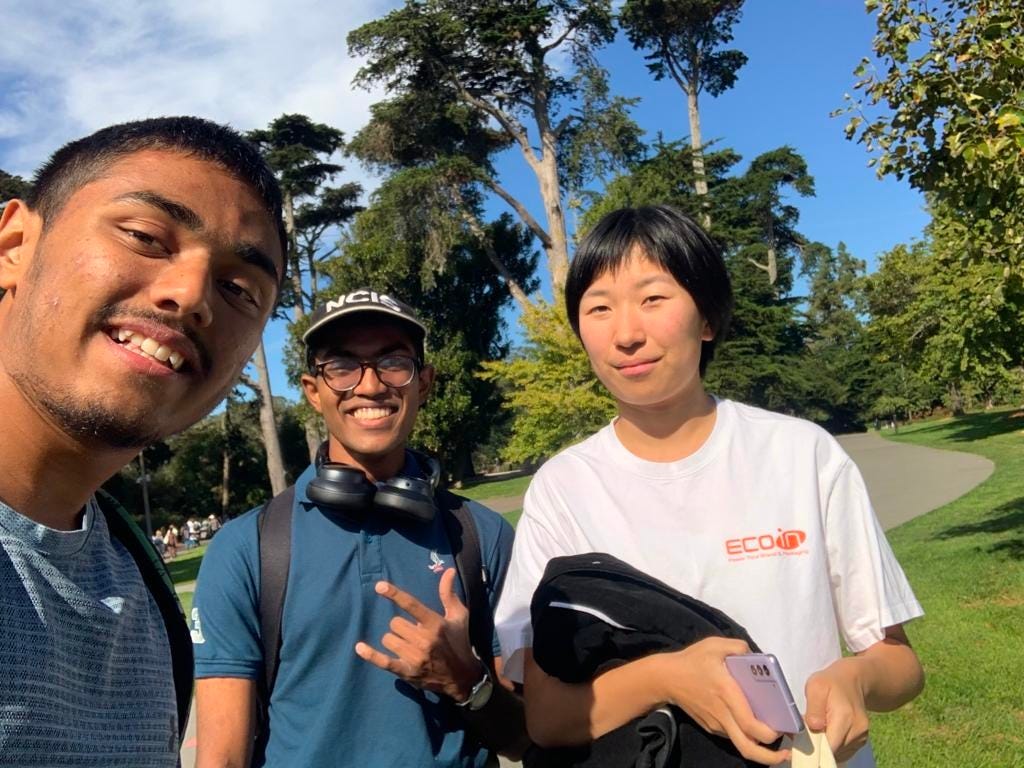




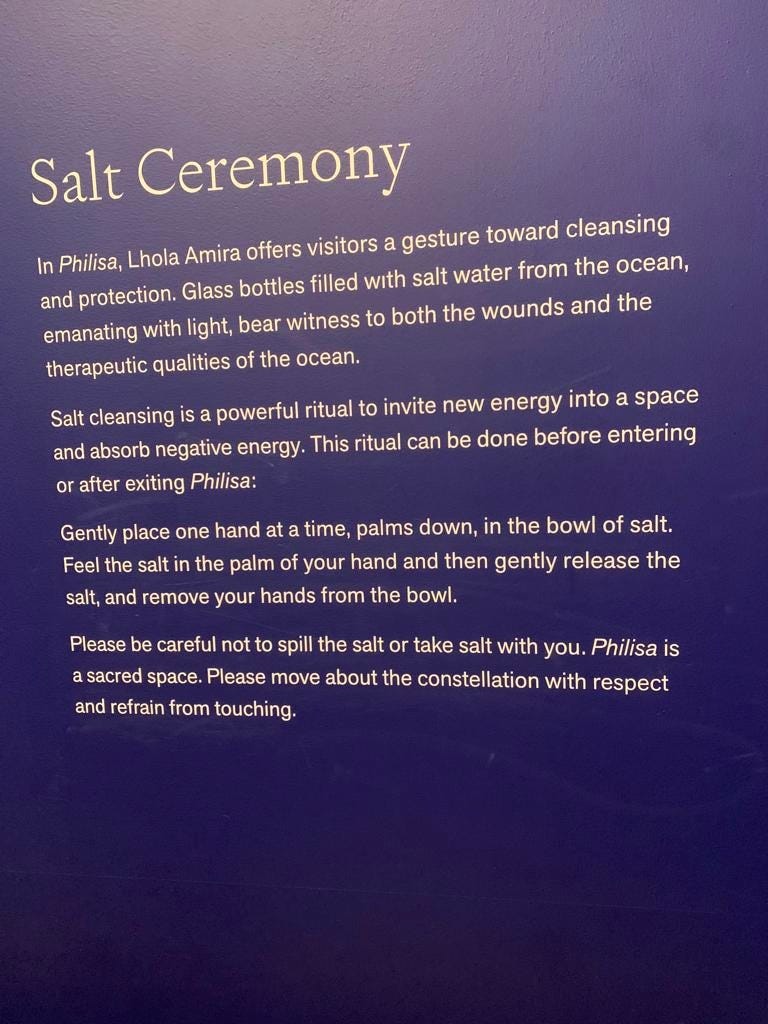






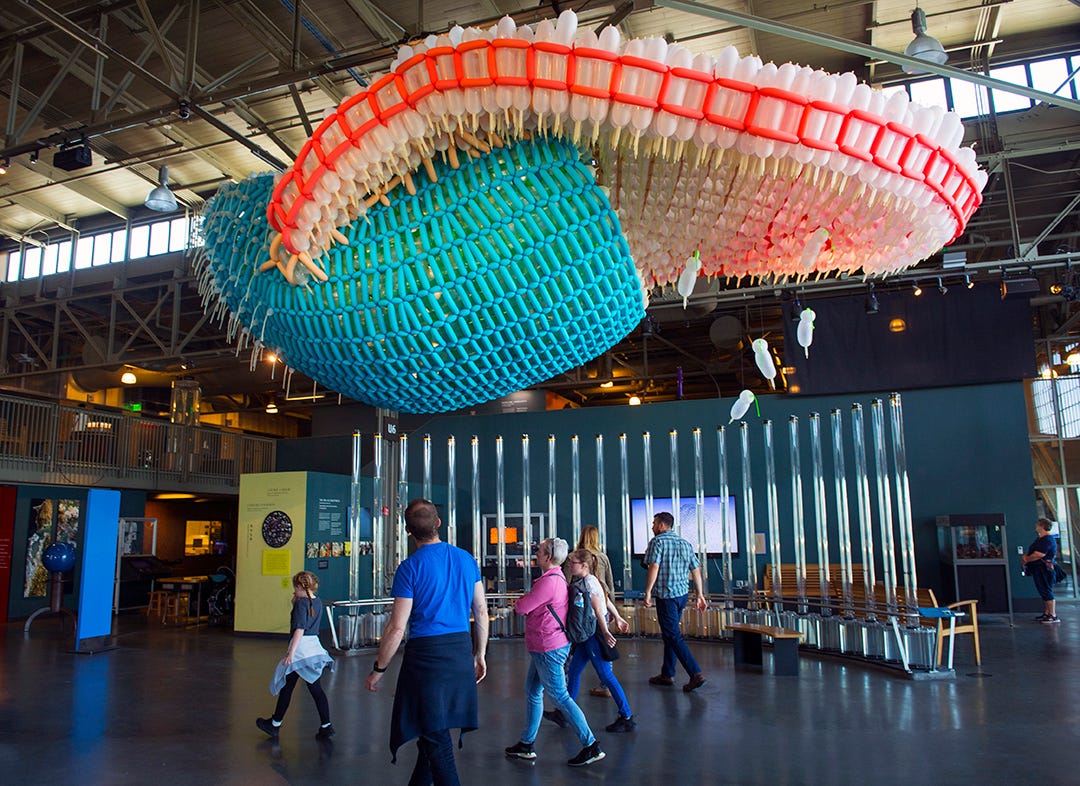
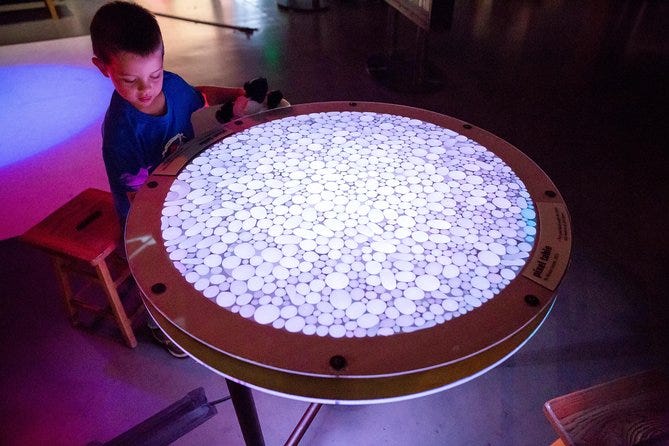
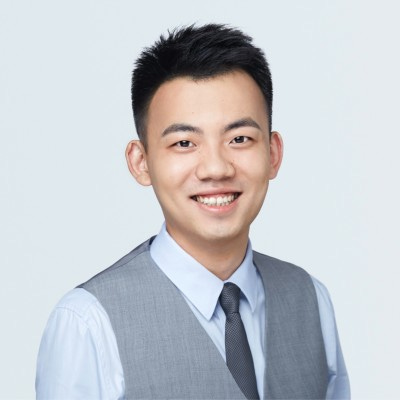


Keep the posts coming Arya! Loving this. You may need to correct the Berkeley typos...
The photos are lovely and the interview was so interesting. Thanks for doing this! Makes me nostalgic, it's awesome to see your perspective on this!